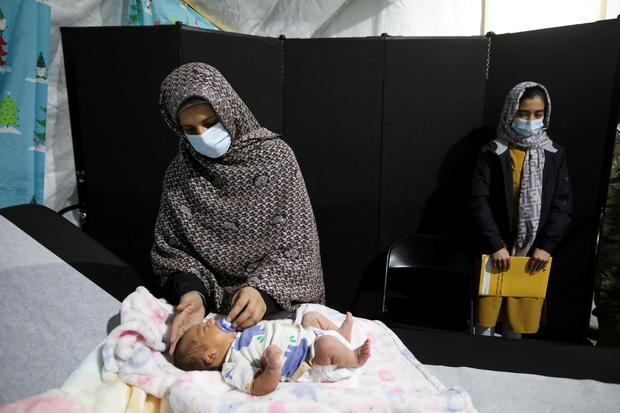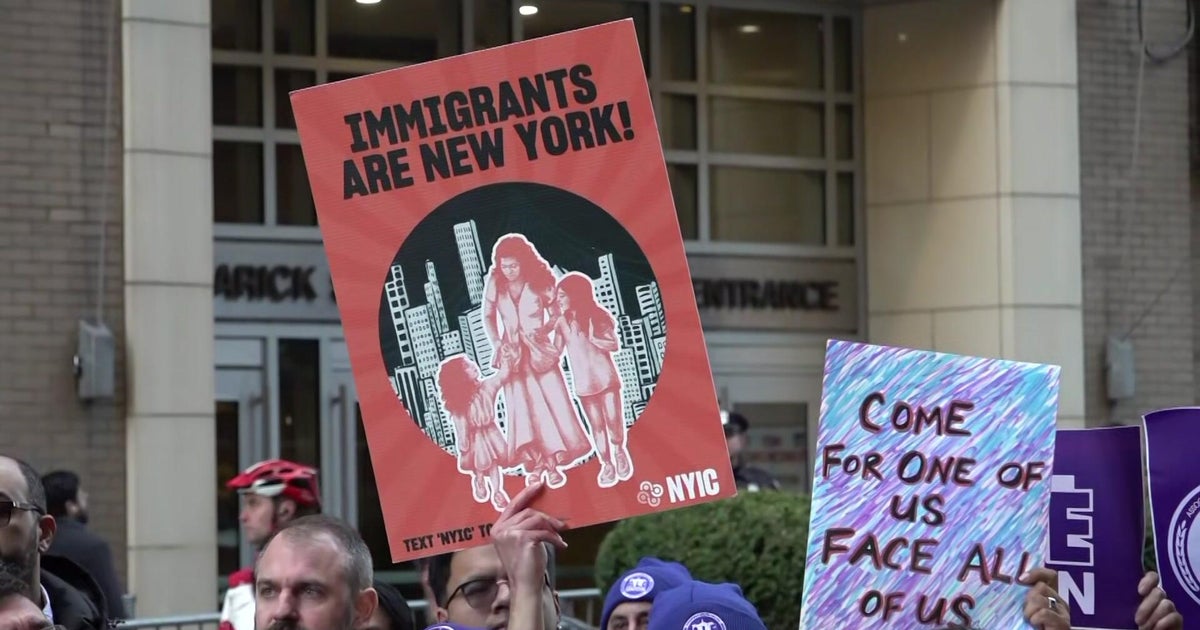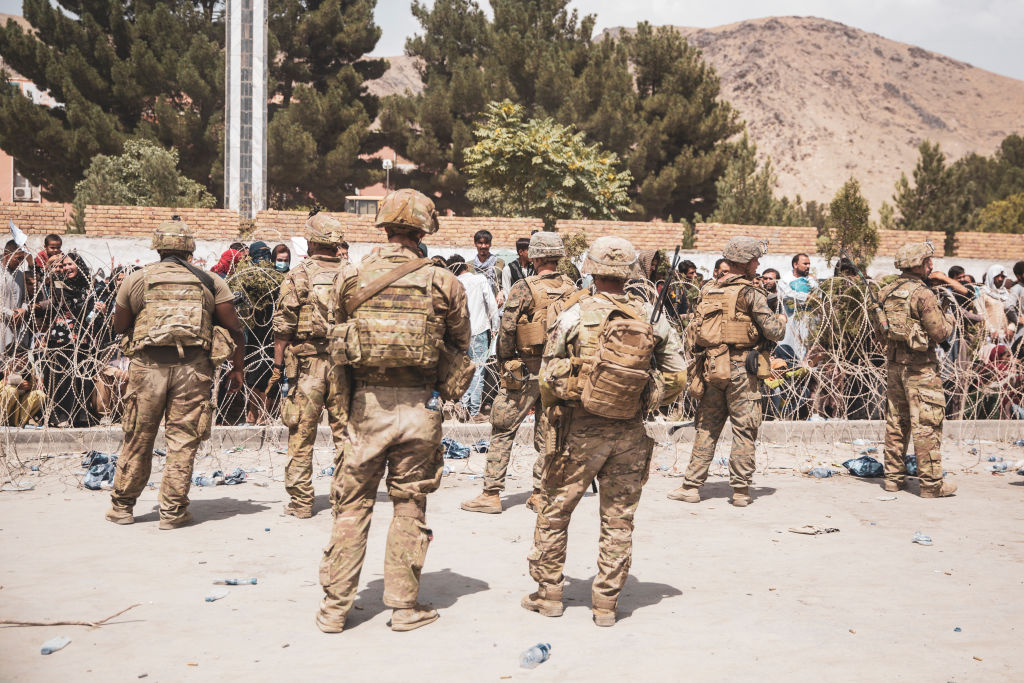36,000 Afghan evacuees lack pathway to permanent legal status in the U.S.
At least 36,433 Afghan evacuees who were or are set to be resettled in the U.S. lack a direct pathway to secure permanent legal residency, according to a government report shared with Congress and obtained by CBS News.
The number, which had not been previously reported, represents over 40% of the tens of thousands of Afghans who were airlifted from Afghanistan as part of the largest evacuation and resettlement operation undertaken by the U.S. government since 1975, when the U.S. resettled 125,000 Vietnamese refugees following the fall of Saigon.
These Afghan evacuees will remain in legal limbo unless Congress legalizes them or they apply for, and obtain, an immigration benefit like asylum. The U.S. asylum program, however, is plagued by a backlog of 412,000 applications. Some could also lose their cases, placing them in deportation proceedings.
"We've been urging Congress to swiftly pass the Afghan Adjustment Act, and the tens of thousands of family members for whom this is the only path to more legal certainty only underscore the urgent need for it," said Krish O'Mara Vignarajah, president of the Lutheran Immigration and Refugee Service.
Due to the hurried evacuations and the Afghan government's sudden collapse, the Biden administration bypassed the years-long refugee process to resettle Afghans deemed to be at risk of being persecuted by the Taliban. Traditional refugees become eligible for permanent residency a year after entering the U.S.
Instead, the administration used a humanitarian legal authority known as parole to admit Afghan evacuees after vetting them at military sites in the Middle East and Europe. While it allows evacuees to live and work legally in the U.S. for two years, parole does not provide them permanent residency.
As of November 15, 70,192 Afghans had been granted parole to enter the U.S., according to the Department of Homeland Security report shared with Congress on Friday. Five evacuees were placed in deportation proceedings after their parole was revoked. The report did not provide reasons for parole terminations, but they could stem from criminal activity.
According to the report, 36,821 Afghan evacuees could qualify for permanent residency through the Special Immigrant Visa program due to the assistance they or their immediate family members provided to the U.S. war effort. The number includes both special visa applicants and those expected to apply for it.
Special immigrant visa holders and their spouses and children automatically qualify for green cards. But like the asylum program, the 14-step visa program has been marred by chronic delays.
A smaller number of evacuated Afghans did not need to be admitted through the parole process because they already had legal permission to enter the U.S., including 3,529 permanent residents and 3,290 evacuees who had received their special immigrant visas, the DHS report shows.
Out of the more than 76,000 Afghan evacuees brought to the U.S., 67,000 have already been resettled in communities across the country with the help of resettlement agencies or their families, according to the latest DHS statistics.
About 8,000 evacuees remain at three military sites in New Jersey, Virginia and Wisconsin, where they have been undergoing further processing and vaccination against the coronavirus and other diseases. The Biden administration is hoping to relocate all evacuees from the military installations by mid-February.
Approximately 2,500 Afghans are still waiting for U.S.-bound flights at military bases in Qatar and the United Arab Emirates, the DHS data indicates.
The report indicated that "several hundred" Afghan evacuees have been barred from entering the U.S. and required to "undergo additional screening" due to security concerns. As of earlier this month, 88 evacuees barred from the U.S. remained in Kosovo undergoing vetting, along with 113 family members.
Last fall, Congress made Afghan evacuees eligible for refugee resettlement benefits, including Medicaid and direct assistance to purchase basic necessities like food and housing. It also instructed U.S. asylum officials to expedite the processing of applications filed by evacuees.
But efforts to introduce and pass an Afghan Adjustment Act that would offer permanent residency to evacuees have so far stalled in Congress, despite a vocal campaign by refugee advocates and public support from the Biden administration.
Earlier this month, outgoing top White House immigration official Esther Olavarria said the administration "wanted to do more" for Afghans evacuees through legislation "that would have allowed these individuals to apply for permanent residence status directly and bypass the asylum process."
"But unfortunately, Congress did not cooperate with us on that front," Olavarria said during an event hosted by the Migration Policy Institute. "So they are going through the asylum process now."
A National Security Council spokesperson said the administration is "actively helping" evacuees file petitions for asylum or special immigrant visas. "We have asked Congress to pass legislation to give our Afghan partners who entered through humanitarian parole a clear pathway to permanent status," the spokesperson told CBS News.
While the Afghan resettlement effort has garnered some rare bipartisan support, many Republicans have raised questions about how the U.S. vetted evacuees. DHS said in its report that federal law enforcement and intelligence agencies conduct biometric and biographic screenings on evacuees.
The 36,433 evacuees who do not have a pathway to legal residency, the DHS report notes, include family members of U.S. citizens, green card holders or special immigrant visa applicants; potential special visa petitioners who have not yet been identified; and those who could've been eligible for refugee resettlement.
Without congressional action, some of these evacuees could gain permanent residency through the asylum program or a sponsorship by a qualifying U.S. citizen family member. But many may not have U.S. citizen family members and some may not meet the legal qualifications for asylum.
The U.S. has not carried out a deportation flight to Afghanistan since late 2020, according to Immigration and Customs Enforcement, so the fate of evacuees who receive denials on immigration applications is unclear.
All of these legal concerns, advocates for refugees argue, could be resolved if the Afghan Adjustment Act becomes law.
Vignarajah, the refugee resettlement official, called the prospect of tens of thousands of evacuees entering the asylum pipeline "deeply troubling, given the dysfunction and backlog of that system." She noted that some evacuees, fearing for their safety, destroyed documents that may be needed for an asylum case.
"So many were evacuated with literally just the clothes on their back," she said.








